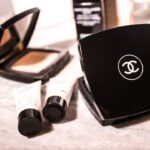In the quest for smooth, hair-free skin, many individuals find themselves weighing the pros and cons of various hair removal methods. Among the most popular options are waxing and laser hair removal, each offering distinct advantages and drawbacks. Waxing, a time-honored technique, involves applying a sticky substance to the skin and then quickly removing it, pulling hair out from the root.
This method can provide immediate results, leaving your skin feeling soft and smooth for weeks. However, it can also be painful and may lead to skin irritation for some. On the other hand, laser hair removal has gained significant traction in recent years due to its long-lasting effects.
This method uses concentrated light beams to target hair follicles, effectively reducing hair growth over time. While it may require multiple sessions to achieve optimal results, many people appreciate the convenience of reduced hair regrowth. As you navigate your options, understanding the nuances of each method will empower you to make informed decisions about your hair removal journey.
Key Takeaways
- Waxing and laser hair removal are popular methods for getting rid of unwanted hair.
- Laser hair removal targets the hair follicles to reduce hair growth, while waxing removes hair from the root.
- Some Reddit users have reported negative experiences with waxing after laser hair removal, including increased hair growth.
- The debate on whether waxing after laser hair removal increases hair growth is ongoing and inconclusive.
- Experts recommend avoiding waxing after laser hair removal and opting for alternative hair removal methods.
The Science Behind Hair Growth and Laser Hair Removal
Hair Growth Cycles
Hair grows in cycles, consisting of three main phases: anagen (growth), catagen (transitional), and telogen (resting). During the anagen phase, which can last several years, hair is actively growing.
How Laser Hair Removal Works
Laser hair removal is most effective during the anagen phase because the laser targets the pigment in the hair follicle, damaging it and inhibiting future growth. Laser technology works by emitting a specific wavelength of light that is absorbed by the melanin in the hair. This absorption generates heat, which destroys the follicle without harming the surrounding skin.
Advantages and Limitations
The precision of this method is one of its key advantages, as it minimizes discomfort and reduces the risk of side effects. However, it’s important to note that not all hair types respond equally to laser treatment; darker, coarser hair tends to yield better results compared to lighter or finer hair.
Reddit Users’ Experiences with Waxing After Laser Hair Removal

As you explore personal accounts of waxing after laser hair removal, platforms like Reddit can provide a wealth of information. Many users share their experiences, revealing a mix of satisfaction and frustration. Some individuals report that they have successfully transitioned from laser treatments to waxing without any adverse effects.
They appreciate the convenience of waxing for touch-ups between laser sessions or as a way to manage any stray hairs that may appear. Conversely, other users caution against waxing too soon after laser treatments. They describe instances where waxing led to skin irritation or discomfort, particularly if they did not allow sufficient time for their skin to heal post-laser session.
These varied experiences highlight the importance of listening to your body and consulting with professionals before making decisions about your hair removal routine. Engaging with these discussions can help you gauge what might work best for you based on others’ insights.
The Debate: Does Waxing After Laser Increase Hair Growth?
| Debate Topic | Does Waxing After Laser Increase Hair Growth? |
|---|---|
| Research Findings | Some studies suggest that waxing after laser hair removal may disrupt the hair follicle regeneration process, leading to potential increase in hair growth. |
| Expert Opinions | Experts are divided on this topic, with some believing that waxing can stimulate hair growth, while others argue that it may not have a significant impact. |
| Recommendations | It is recommended to avoid waxing after laser hair removal to ensure the best results and minimize potential risks of increased hair growth. |
The question of whether waxing after laser hair removal increases hair growth is a topic of ongoing debate among beauty enthusiasts and professionals alike. Some argue that waxing can stimulate hair follicles, potentially leading to increased regrowth.
On the flip side, many experts assert that waxing does not significantly impact the effectiveness of laser treatments. They argue that since laser hair removal targets the follicle directly, any subsequent waxing should not interfere with the results achieved through laser sessions. However, this remains a contentious issue, with opinions varying widely based on individual experiences and skin types.
As you consider your options, it’s crucial to weigh these differing viewpoints and determine what aligns best with your personal goals for hair removal.
Expert Opinions on Waxing After Laser Hair Removal
When navigating the complexities of hair removal methods, seeking expert opinions can provide valuable guidance. Dermatologists and licensed estheticians often emphasize the importance of patience after undergoing laser hair removal. They typically recommend waiting at least two weeks before considering waxing as a method for managing any regrowth.
This waiting period allows your skin to recover from the laser treatment and minimizes the risk of irritation or adverse reactions. Experts also highlight that individual responses to both laser treatments and waxing can vary significantly. Factors such as skin type, hair color, and sensitivity play a crucial role in determining how well one method may work in conjunction with another.
Consulting with a professional who understands your unique needs can help you make informed decisions about your hair removal routine while ensuring that you prioritize your skin’s health.
Tips for Post-Laser Hair Removal Care
Keep the Treated Area Clean and Moisturized
One of the most important tips is to keep the treated area clean and moisturized. Using a gentle cleanser and a soothing moisturizer can help prevent irritation and promote healing.
Avoid Sun Exposure and Harsh Products
Additionally, avoiding sun exposure is crucial; UV rays can increase sensitivity and lead to complications such as hyperpigmentation.
This includes refraining from exfoliating scrubs, chemical peels, or other aggressive skincare routines that could irritate your skin.
Nurture Your Skin for Optimal Recovery
Instead, focus on nurturing your skin with hydrating products and allowing it time to recover fully before considering any additional hair removal methods like waxing.
Alternatives to Waxing After Laser Hair Removal
If you’re hesitant about waxing after laser hair removal or have experienced negative effects in the past, there are several alternative methods worth exploring. One popular option is shaving, which is generally considered safe after laser treatments as it does not involve pulling hair from the root. Shaving can be a quick and painless way to manage any regrowth while allowing your skin to heal properly.
Another alternative is using depilatory creams designed for sensitive skin. These creams dissolve hair at the surface level without affecting the follicle itself, making them a suitable option for those who want to avoid waxing or shaving altogether. However, it’s essential to perform a patch test before applying any product to ensure you do not experience an adverse reaction.
Making Informed Decisions About Hair Removal
In conclusion, navigating the world of hair removal requires careful consideration of various methods and their implications for your skin health and personal preferences. Waxing and laser hair removal each offer unique benefits and challenges that can influence your decision-making process. By understanding the science behind these methods and engaging with personal experiences shared by others, you can make informed choices that align with your goals.
Ultimately, whether you choose to wax after laser treatments or explore alternative methods, prioritizing your skin’s health should always be at the forefront of your decisions. Consulting with professionals and listening to your body will empower you to create a personalized hair removal routine that works best for you. As you embark on this journey toward smooth skin, remember that knowledge is power—equipping yourself with information will lead you toward successful outcomes in your quest for beauty and confidence.
There is a lot of debate on whether waxing after laser hair removal can actually increase hair growth, with many Reddit users sharing their experiences and opinions on the matter. For more information on laser hair removal and other related topics, you can check out this article on customizing your laser hair removal treatment. It provides valuable insights on how to personalize your hair removal journey to achieve the best results.
FAQs
What is waxing after laser hair removal?
Waxing after laser hair removal refers to the practice of using wax to remove any remaining hair after undergoing a laser hair removal treatment.
Does waxing after laser hair removal increase hair growth?
There is no scientific evidence to suggest that waxing after laser hair removal increases hair growth. In fact, laser hair removal is intended to reduce hair growth over time.
Is it safe to wax after laser hair removal?
It is generally safe to wax after laser hair removal, but it is important to follow the specific post-treatment care instructions provided by your laser hair removal technician to avoid any potential complications.
How long should I wait to wax after laser hair removal?
It is recommended to wait at least 2 weeks after a laser hair removal treatment before waxing to allow the skin to heal and the hair to shed naturally.
Can waxing interfere with the results of laser hair removal?
Waxing can potentially interfere with the results of laser hair removal if done too soon after a treatment, as it may disrupt the hair follicles that have been targeted by the laser. It is best to consult with your laser hair removal technician for specific guidance.






